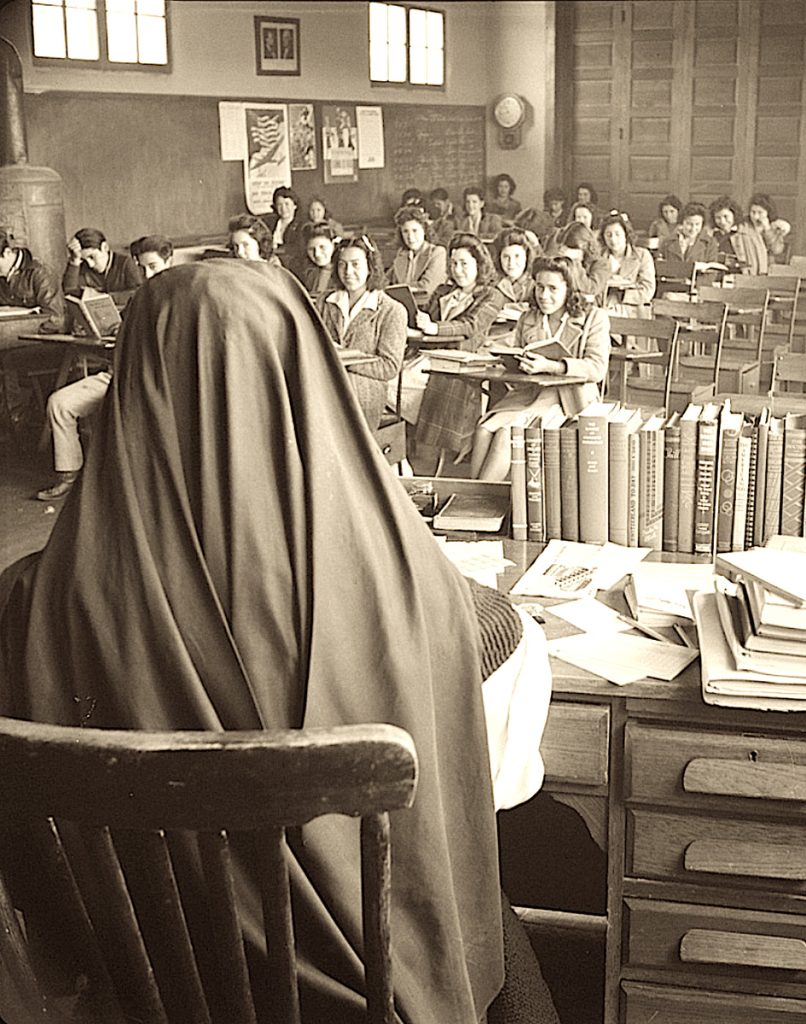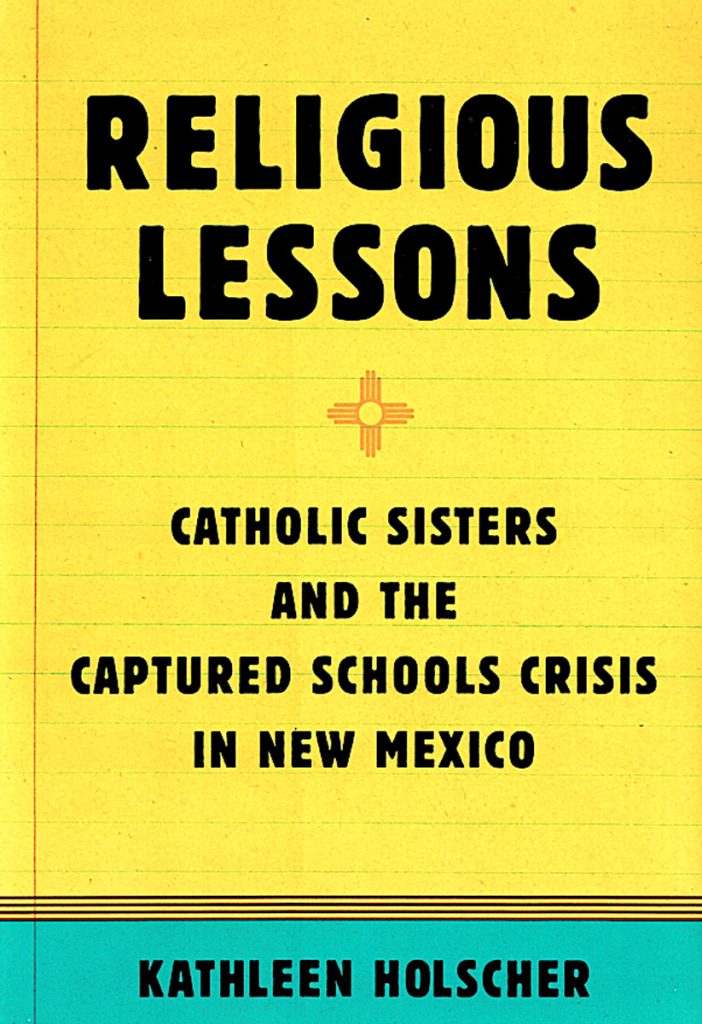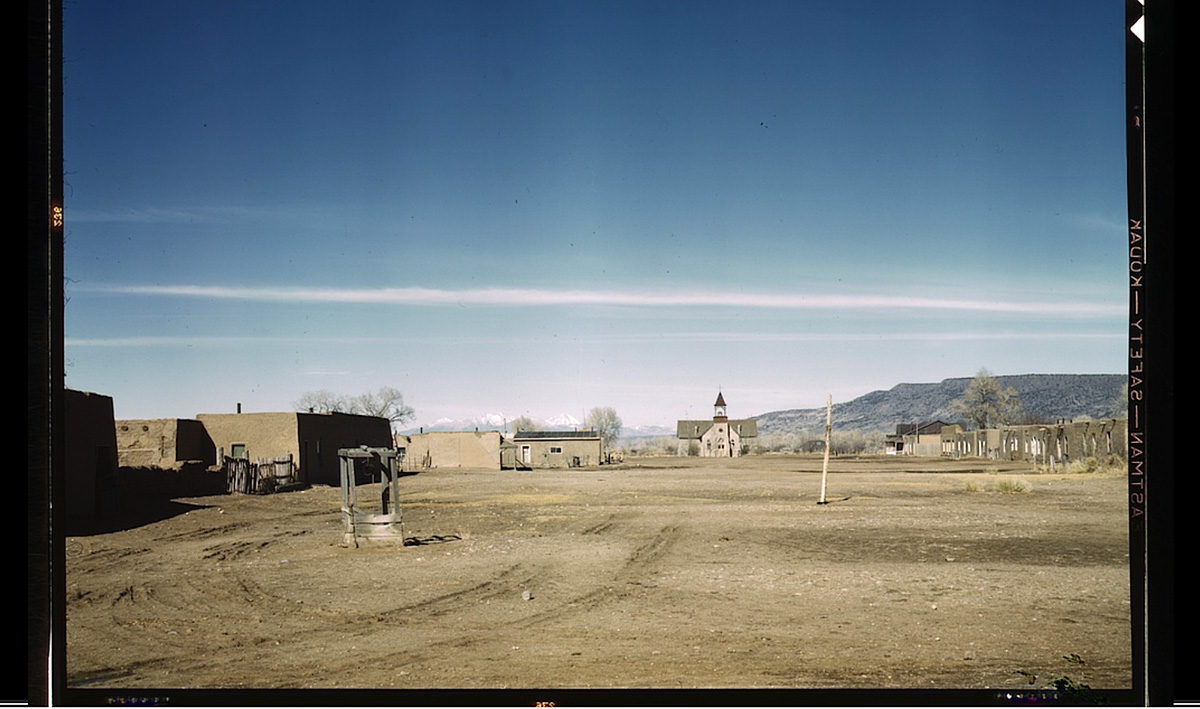Taos Community Historic Society (TCHS)
Seventy-five years ago, on Wednesday morning, March 10, 1948, Dixon resident Lydia Zellers and 27 other members of the Dixon Free Schools Committee filed suit in Santa Fe District Court contesting the use of Catholic nuns, brothers, and priests as teachers and administrators in taxpayer-supported schools in New Mexico. The District Court agreed, and by the time the New Mexico Supreme Court ruled on appeals in 1951, the face of public education throughout the state, and particularly in places like Costilla, Peñasco, and Ranchos de Taos was profoundly changed forever.


Dr. Kathleen Holscher, associate professor and endowed chair in Roman Catholic Studies at UNM, will explore the lawsuit, Zellers v. Huff, also known as the Dixon School Case, for the Taos County Historical Society on Saturday, August 5, at 2 p.m. at the Kit Carson Electric Cooperative boardroom, 118 Cruz Alta Rd., in Taos. Her talk will also explore the local circumstances that made sister-taught public education the norm across northern New Mexico, as well as the role New Mexican communities played in defining church-state separation as an American legal principle.
During the first half of the twentieth century it was normal to find Catholic sisters dressed in their flowing religious garb teaching in public schools. Sister-taught schools were especially common in Taos and neighboring Rio Arriba counties.
The Sisters of Mercy, a large international order founded in 1831, came to San Luis, Colorado, around 1900 and soon established an elementary and high school in the hamlet of Costilla. According to a 1940 directory of churches and religious organizations, the Rev. Joseph Boillat was pastor of Sacred Heart Church and six Sisters of Mercy lived in the convent on Costilla plaza, with Sister M. Aloysius as their superior and school principal. The sisters departed in 1949 when the Zellers decision barred further taxpayer support for their schools, and public schooling in Costilla has had a shaky foothold ever since. Río Costilla SW Learning Academy in Costilla, with 26 students in grades 1-6, closed in 2017.
Dr. Holscher is the author of “Religious Lessons: Catholic Sisters and the Captured Schools Crisis in New Mexico,” a fascinating account of Catholicism’s deep roots in New Mexico, particularly in our northern counties. The Dixon School case is almost entirely forgotten today but remains the most consequential litigation in state history. Come learn more from Dr. Holscher on Saturday, August 5, at 2 p.m., courtesy of the Taos County Historical Society.
For more info on the program or the Dixon School Case, call Michael Wilson at (612) 743-6546.
Michael Wilson is a member of the TCHS Program Committee. He lives in Taos.



